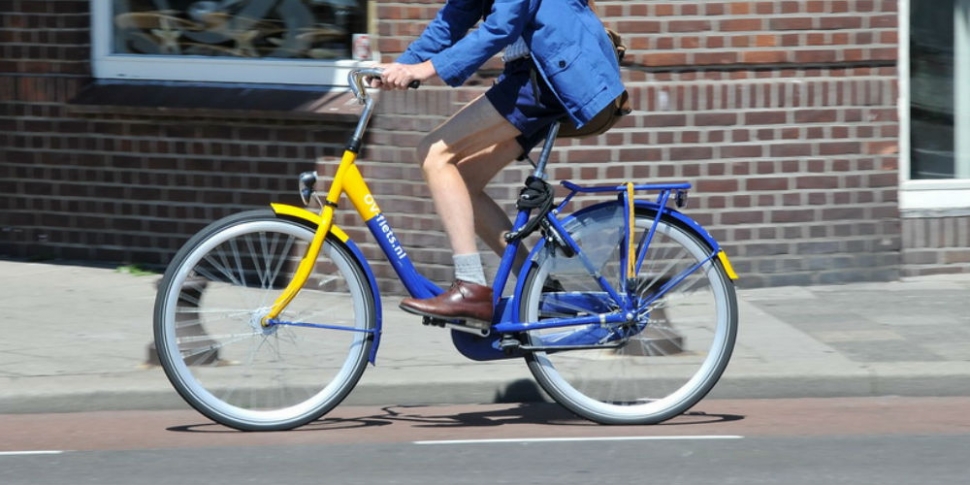Originally written in Dutch on Marketingfacts.
I’d like to talk about telecom providers who work with influencers, but communicate from a noreply email address, or have a ten minute telephone queue. About how every energy provider wants an app. About how the internet is about to burst with well-meant selfie campaigns and Facebook live-sessions and blogs that nobody will ever see. About purpose-bullshit with which soda and beer brands try to improve the world. Or about the Dutch retailer Blokker that proudly says it has a scoop with the first real-time data-driven brochure, but has to close hundreds of stores.
I get it. As a person we all want to be funny, clever and world-improving. Just maybe we shouldn’t work at beer companies then. But instead of accepting that beer is actually quite bad for the world, we project our personal conviction (‘I’m a good person’) on that what we do professionally, and we collect theoretical evidence to support it — even though there’s plenty of evidence against it. We think we’re innovative when we drop the word blockchain, or when we make a heatmap of our website through Hotjar, or when we install a chatbot on our homepage — whether consumers want it or not. And the point is: no consumer wants this drivel. No, I don’t want push notifications, I won’t allow you to know my location, I don’t want to subscribe to your newsletter, and I also don’t want an email about your NPS survey when I parked once on Schiphol Airport, and I also don’t want two reminders if I ignore the first one. I don’t need a confirmation when I unsubscribe to your newsletter. I don’t want stupid puns on every public holiday, and I don’t want trophies in my banking app. I don’t want emails about planned maintenance to my webserver from 0:15 en 7:00 in the night, I don’t want to cooperate with improving your website — not even if it only takes a minute — and I don’t want to vote for you in some ‘best store’ competition.
As a marketeer (and cyclist) I love NS’ OV-fiets (public transport bike), because the NS (Dutch Railways) keeps it so simple. The bicycle isn’t sexy (it’s super ugly). But it’s simple and easy in use. Checking in only takes a minute. You only need a personal public transport card, which everybody has. You don’t need to reserve the bike, and you also don’t need to tell when and where you’re bringing it back. There’s no subscription fee and the pricing model is simple and cheap. There’s 24/7 customer support and the opening times are from very early to very late. Oh, and there are now over 300 locations in the Netherlands, and last year people made 3.2 million rides. I especially appreciate what the NS didn’t do. There’s no special customer card for the OV-fiets, there’s no app, not a special Facebook page, no newsletter, and they don’t try to upsell me a poncho or water bottle. I don’t get surveys about the quality of their staff at ‘my’ station, Amsterdam Zuid — and there has been no attempt at making the bicycle lifestyle. It would have been so easy to collaborate with a vlogger (‘Enzoknol cycles to Monnickendam!’), or to talk about sustainability (‘You save 107 grams of CO2 with each kilometre you cycle compared to a car!’), or a blockchain or NFC smartphone scan for checking in- and out.
I also like Uber (even though there’s plenty wrong within the company itself), because the app is so simple in use. KLM has a great customer support on social media, and sends my boarding pass on WhatsApp so I don’t need to download their app. I like citizenM because they don’t force me to talk with a receptionist and I can just check in myself. Audi in England has an anti-scratch service where you simply make a photo and send it to them, after which they come visit you to repair it. And customers love it. I never heard anyone say that about influencers.
I love simple brands like Apple, Uniqlo, Marktplaats and Netflix, because they don’t try so hard to be funny, and they know when to leave me alone. Greetz — even though they try to upsell me a chocolate bar for each card I send — is so easy to use too. WeTransfer is nicer than Dropbox. But also on a local level a lack of marketing works. The bicycle storage in Den Haag provides everyone with a QR-code keychain, so you can quickly prove ownership of the bike you’re taking in or out, and the newsletter of the ABC bookstore in Amsterdam is simply a list with titles, without a lifestyle layer.
There’s definitely a place for marketeers that add value to brands by entertaining, but marketing is more than KPI’s on Facebook and Instagram (most brands shouldn’t even be on social media in the first place). Most marketeers would do better by putting their energy in improving existing contact points, such as improving the buying process. That’s more difficult than a ‘programmatic brochure’, or a ‘smart coathanger‘, but much more important and meaningful. It’s good to realise the consumer doesn’t care as much about your brand as you do — and that not everything has to be over-marketed.




